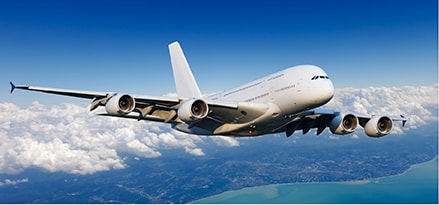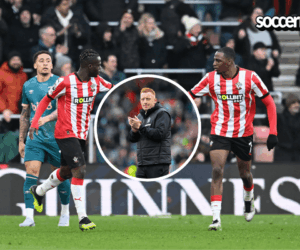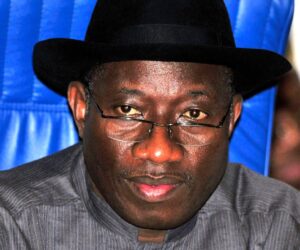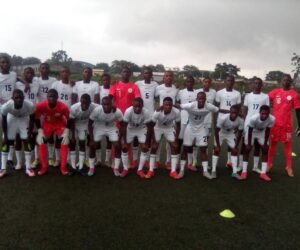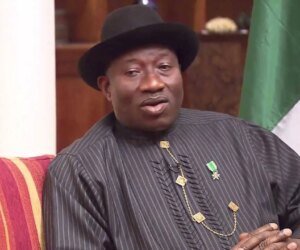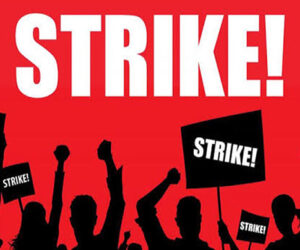1
LAGOS – When the price of an airline ticket goes up, the usual suspects are Jet A1 costs, volatile foreign exchange, or shifting operational expenses. Yet in Nigeria today, there is another increasingly dominant culprit – the ever-expanding web of government-imposed levies.
From December 1, 2025, the Nigeria Civil Aviation Authority (NCAA) has notified airlines that it will begin collecting an additional Advance Passenger Information System (APIS) charge of $11.50 per international ticket.
The levy, the agency said, will be collected at the point of sale and remitted by the issuing carrier. For many travelers the new charge is just the latest layer in a long list of taxes and fees that turn a headline fare into something very different at checkout.
Taken together, the ticket taxes are eye-watering. An average international traveller to or from Nigeria now faces a stack of mandatory charges that routinely include:
Passenger Service Charge (PSC) – charged by the Federal Airports Authority of Nigeria (FAAN), frequently reported in the region of $100 per international passenger from non-West African countries or $80 for West African countries.
Existing NCAA security levy – a long-standing security charge commonly reported at $20 per international ticket before the APIS increase.
Ticket Sales Charge (TSC) – a percentage levy (about 5 percent of ticket value) which is also collected from passengers.
New APIS charge – the NCAA’s $11.50 addition from December 1, 2025.
Add service fees, airline surcharges and foreign-exchange driven fare increases and independent analysts say the cumulative burden on an inhabitant travelling internationally from Nigeria can approach – and often exceed – $150 per ticket once all levies and charges are counted. That figure makes Nigeria one of the costliest jurisdictions in Africa for taxed aviation travel.
The NCAA has framed the APIS levy as a security and border-management initiative: data collected through the system will be used to pre-screen passengers and create a single-window approach for agencies at airports, the agency says. The authority also stated the charge is intended as a cost-recovery mechanism for the system’s maintenance and operation. The levy is scheduled to run for 20 years.
Even with that rationale, the arithmetic and the accountability raise serious questions. Using pre-existing passenger traffic figures, several outlets estimated the NCAA could collect roughly $46–49 million per year from the APIS levy – a stream that would cumulate to nearly $1 billion over 20 years (estimates typically cluster around $989 million to $1.0 billion depending on exchange-rate assumptions). Those sums are material: they would dwarf many single-year allocations often discussed in aviation-sector budgeting.
Daily Independent spent several hours at Lagos’s Murtala Muhammed International Airport and spoke with travellers about what the extra levy means on the ground. Their voices capture the anger and bewilderment felt by many who already budget tightly for travel:
“I’m travelling for my sister’s graduation,” said one young man as he queued to check in. “That extra $11.50 might not sound like much but when you add it to the PSC and the airport taxes, it becomes a second ticket. It’s unfair.”
A businesswoman heading to London told Daily Independent: “We pay VAT, ticket charges, security levies – and now this. You feel like you’re being taxed for existing.”
An elderly couple, returning from a holiday, added: “Pensioners travel on small budgets. We had to cancel once because of airfare increases – these levies are making travel a luxury.”
A student, clutching one backpack, said bluntly: “If prices keep rising, young people will stop going abroad for study or work visits. This is short-sighted.”
Those personal snapshots underline that the debate is not only fiscal; it is social and economic. Higher ticket prices risk reducing outbound travel, diverting transit traffic to other West African hubs and squeezing airlines already battling slim margins. Several carriers and industry voices have warned that stacked taxes erode competitiveness and could push passengers to fly via neighbouring countries with lighter levies.
Beyond the burden on travellers, the central question is accountability. The NCAA has set the levy to run for two decades – a long time frame for what is nominally a cost-recovery measure.
Daily Independent sought answers from the regulator: how will the funds be ring-fenced? What governance, audit and public-reporting mechanisms will guide the spending? Will the levy be periodically reviewed against passenger volumes and actual APIS running costs? Who will oversee project procurement for the system? To date, those questions remain unanswered. Daily Independent reached out to the NCAA for comment but had received no response at the time of publication.
There are other, more granular queries that deserve transparent answers. For example: Overlap and duplication: How will APIS interact with existing security levies and the responsibilities of the Nigeria Immigration Service (NIS) and other agencies? If several agencies perform passenger data checks, is the aim truly to streamline, or merely to collect multiple fees?
Equity and exemptions: The NCAA memo reportedly exempts infants, diplomats and crew; will there be other categories of relief (students, Nigerians in diaspora on medical travel), and how will exemptions be administered to avoid abuse?
Economic impact modelling: What independent analysis was used to assess the levy’s effect on passenger demand, airline routing decisions and the broader tourism and expatriate remittances sectors?
Transparency over the 20-year term: A two-decade collection plan requires detailed, ongoing public reporting – not just a one-off memo. Will the NCAA publish annual receipts, audited accounts and project updates?
Industry groups and passengers alike have argued that new levies should be introduced only after broad stakeholder consultations, clear transparency safeguards and demonstrable efficiency improvements.
Several airline executives, speaking to other outlets, emphasised that blanket taxes are blunt instruments that can backfire, penalising ordinary passengers and diverting traffic away from local airports.
The NCAA’s stated goal – a single-window data system and improved border security – is not controversial in principle. Many countries operate APIS or similar systems. The Rubicon for public acceptability, however, is whether citizens can see the value for money and whether revenue collection is subject to independent oversight.
Nigeria’s aviation sector has struggled in the past with opaque project financing and weak follow-up on infrastructure promises; this episode will be judged on whether it repeats those patterns or breaks them.
For now, travellers will continue to feel the squeeze at the ticket counter. The NCAA’s new $11.50 levy is small in isolation but large in aggregate: when combined with the PSC, TSC and other charges it helps explain why the real price of flying from Nigeria is consistently higher than many passengers expect.
If the regulator wants public trust for a 20-year revenue scheme, the remedy is simple in principle if demanding in practice – publish the numbers, open the books, answer the questions and show, clearly and repeatedly, how the money improves security and service rather than simply swelling accounts. Until then, the levy will look less like a security upgrade and more like another invisible tax on travel.

